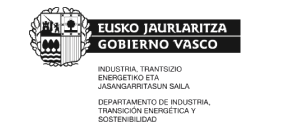Coronavirus has shaken our world as we knew it. In a short period of time our daily life has been totally revolved with a strong impact on our wellbeing, economy, social patterns, environment and even beliefs and values. The different characteristics of this crisis as compared to previous economic-financial crises as mentioned by Aranguren and Navarro, require a coordinated and global response in the emergency phase, although there is still some room for regions and cities (see also Albizu and Estensoro’s reflection) for adapting some measures to territorial specificities. In that realm, we have noticed how regions are contributing with their own initiatives to the national centralised responses, such as the Basque support measures to SME’s during this resistance phase. These measures are mainly directed to guarantee the survival of companies, to try not to lose as much jobs as possible, to reinforce social wellbeing and in summary, to facilitate a fast recovery. The question here would be: recovery towards which path? The answer is not easy but needs to be built upon several features that can be identified from our knowledge from previous crises and that I will summarise in two: the ability to react and adapt; and the ability to renew from and prevent future crises. More resilient regions will be the ones that provide a better combination of these two abilities
- The ability to react and adapt to the new context: Every crisis is originated by a shock. But of course, there are different types of shocks. We can differentiate among emergencies, such as this one originated by a pandemic situation, macro-economic and financial disturbances or structural changes in the economy (i.e. de-industrialisation processes). The resistance phase is determined by the scale, nature and duration of the shock. As previously commented, COVID-19 as a shock is global and systemic in nature, as it combines a health emergency with an economic emergency and measures taken have been directed to shorten the duration of the shock’s impact and facilitate a fast recovery. These measures are the ones that need a greater coordination and mainly rely on national and supra-national institutions.
- The ability to renew from and prevent new crises: Without denying the importance of reactive measures in the resistance phase, this ability should be also reinforced since the very beginning for assuring a fast and sustainable recovery. Here we focus on the ability of regions to renew from the shock situation, which implies to reorganise previous activities and actors’ relationships and even to re-orientate them, by generating new activities. Territories that demonstrate this ability will show not only greater positive impacts on regional development and wellbeing, but also a lower vulnerability and exposure levels to shocks in future crises. The question here is how to develop this ability and how can be applied to this specific crisis. What we learnt from previous crises is that this ability depends on different mechanisms from which I would highlight two that are interconnected: the regional economic base and the institutional arrangements.
 Source: Evenhuis (2017)
Source: Evenhuis (2017)

Edurne Magro
Edurne Magro is a Senior Researcher at Orkestra-Basque Institute of Competitiveness. She holds a Ph.D. in Business Competitiveness and Economic Development with a European Mention from the University of Deusto, after having spent time at the Manchester Institute of Innovation Research of the University of Manchester, United Kingdom. She holds a degree in Business Administration and Management and has a Master in Innovation and Technology Management from the University of Deusto..













